On the Natural History of Destruction (Modern Library Paperbacks) Paperback – February 17, 2004
by W.G. Sebald (Author), Anthea Bell (Translator)
4.3 out of 5 stars 26 customer reviews
------------------
Customers who bought this item also bought
Page 1 of 20Page 1 of 34This shopping feature will continue to load items. In order to navigate out of this carousel please use your heading shortcut key to navigate to the next or previous heading.
Back
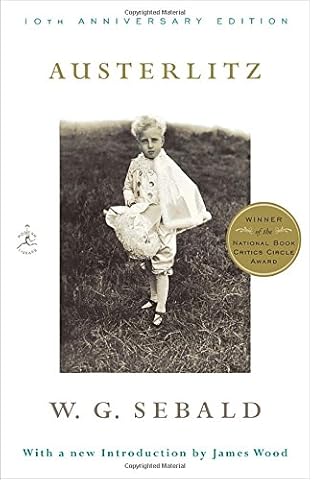
Austerlitz (Modern Library Paperbacks)
W.G. Sebald
4.1 out of 5 stars 185
Paperback
$11.58 Prime

The Emigrants (New Directions Paperbook)
W. G. Sebald
3.8 out of 5 stars 114
Paperback
$10.55 Prime
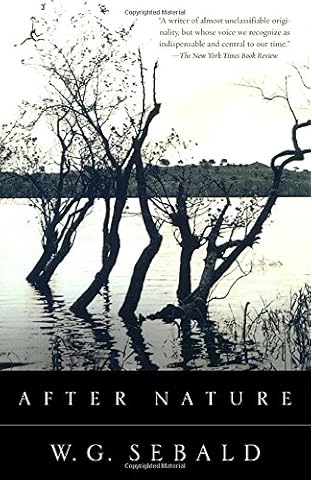
After Nature (Modern Library Paperbacks)
W.G. Sebald
4.2 out of 5 stars 10
Paperback
$14.44 Prime
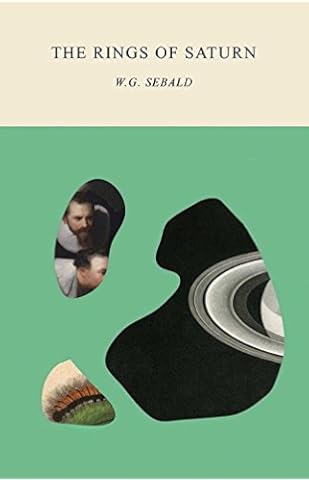
The Rings of Saturn
W. G. Sebald
4.3 out of 5 stars 129
Paperback
$10.00 Prime
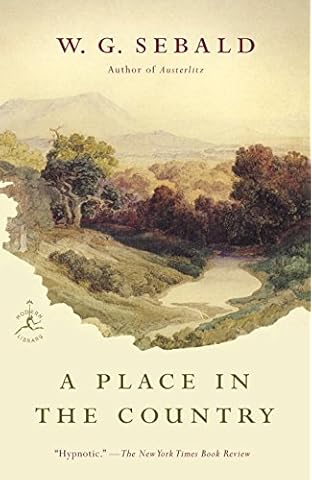
A Place in the Country (Modern Library Classics)
W.G. Sebald
3.9 out of 5 stars 11
Paperback
$14.23 Prime
Next
Sponsored products related to this item (What's this?)
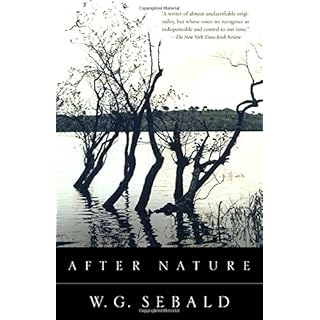
After Nature (Modern Library Paperbacks)
W.G. Sebald
10
Paperback
$14.44
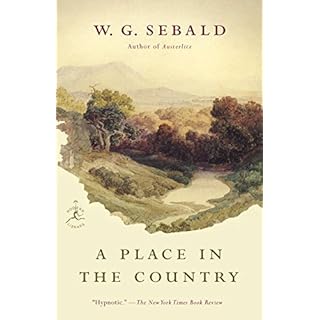
A Place in the Country (Modern Library Classics)
W.G. Sebald
11
Paperback
$14.23
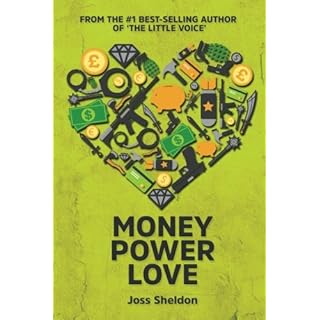
Money Power Love: A Novel
Joss Sheldon
41
Paperback
$11.32
-----------
Editorial Reviews
From Publishers Weekly
Shortly before his untimely death last year, Sebald had published to great acclaim Austerlitz, the NBCC Prize-winning fourth of his novel-memoirs that appeared in rapid succession. Now comes this slim collection of four essays addressing the same themes that preoccupied Sebald in Austerlitz and his other major works-memory and survival in an era marked by so much wanton cruelty. The four essays gathered here find Sebald turning his luminous intelligence and rich, sometimes caustic prose on major figures of postwar German literature.
Sebald can be a devastating critic: he dislikes melodrama and falsehood, is inspired by crisp, serious prose a
In "Air War and Literature," Sebald criticizes the silence of postwar German literature on the starvation, mutilations and killings caused by Allied bombings. The essay provoked a major controversy when it appeared in Germany in 1999. Some commentators were dismayed that Sebald chose to revisit those difficult times and to attack, with his full ironic and sardonic powers, a number of revered figures in German literature. Sebald was dismayed that his comments provoked an outpouring of support from those who could talk only about German suffering and Jewish conspiracies. But only at the very end, almost as an afterthought, does Sebald place this suffering in historical context, as the consequence of German policies of total war and the Holocaust. "Air War and Literature" is an important but flawed effort by a writer who always demanded unflinching engagement with the past. B&w photos. (On sale Feb. 11)
---
Sebald's final work, which roused many Germans to anger, investigates the consequences of the huge civilian loss Germany endured during World War II.
Copyright 2002 Reed Business Information, Inc. --This text refers to an out of print or unavailable edition of this title.See all Editorial Reviews
Product details
Series: Modern Library Paperbacks
Paperback: 224 pages
Publisher: Modern Library; Reprint edition (February 17, 2004)
Language: English
----------------

After Nature (Modern Library Paperbacks)
W.G. Sebald
10
Paperback
$14.44

A Place in the Country (Modern Library Classics)
W.G. Sebald
11
Paperback
$14.23
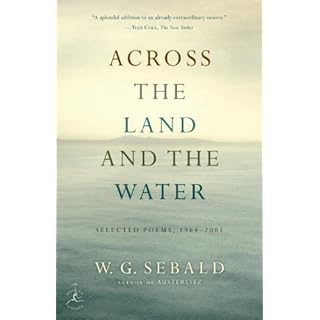
Across the Land and the Water: Selected Poems, 1964-2001 (Modern Library Paperbacks)
W.G. Sebald
3
Paperback
$9.93
Ad feedback
Ad feedback
-----------------------------
Customer Reviews
4.3 out of 5 stars
26
4.3 out of 5 stars
5 star 69%
4 star 12%
3 star 11%
2 star 8%
1 star1 star (0%)
0%
Top customer reviews
Alex K.
5.0 out of 5 starsA history of post-traumatic silenceJune 18, 2013
Format: Kindle Edition|Verified Purchase
The book consists of four parts with a foreword. Part one, taking up half of the volume, deals with the Allied bombings and a strangely muted response to that disaster in post-war Germany, both in private conversations and printed literature. I would recommend this part to anyone. It makes clear the extent of the destruction, but only as a prerequisite for the study of the silence that followed. Sebald looks into different ways Germans blocked out the trauma of the air war while rebuilding the country, and draws parallels between the raging fires of 1943-45 and apocalyptic reveries of German expressionists. Sebald concludes with a review of letters he received from German readers in response to his lectures.
Part two is a story of a German fiction writer, Alfred Andersch, who tried to relive his life more virtuously, and less cowardly, through his fiction. Parts three and four deal with work by Jean Améry, Sebald's mentor, and Peter Weiss, well known for his play Marat/Sade and less so for his three-volume novel, "The Aesthetics of Resistance." Améry's subjects - torture, pain, limitations to one's humanity - won't make for easy reading but I think I'm going to try as some of his work is available in English. As for Weiss, only one volume of his "Aesthetics" has been translated, unfortunately.
Comment| 4 people found this helpful. Was this review helpful to you?
Yes
NoReport abuse
Lewis M.
5.0 out of 5 starsTill We Forget.May 3, 2015
Format: Kindle Edition|Verified Purchase
This is perhaps the most intriguing discussions' of the WW II Allied bombing campaign and the German reaction to it I have ever read. The essays on the authors who wrote in the shadow of the war were perhaps the most intriguing parts of the book for the depth and complexity of literary analysis.
One is left with a deep anxiety for our incapacity to process the direct experience of war and political terror and a deeply ambiguous wonder at the way articulate people managed it. God help the rest.
----------------
Grady Harp
HALL OF FAMETOP 100 REVIEWER
5.0 out of 5 starsA Posthumous EncoreMarch 8, 2003
Format: Hardcover|Verified Purchase
WG Sebald died far too soon. In the past few years this penultimately creative German writer graced us with four novels, or memoirs ("The Emigrants", "The Rings of Saturn", "Vertigo", and "Austerlitz") that created a hunger for more great writing from this gifted man.
Shortly after his untimely death "After Nature" was published and proved to us that the novelist so many of us regarded as a 'poet' was indeed a gifted Poet. Now, with the relase of this collection of essays yet another aspect of WG Sebald is revealed - a critical philosopher unafraid to shed light on aspects of his German descent like few other writers have.
In "Air War and Literature" Sebald describes what the Allied Forces invasion and devastation of a country so reviled for its Nazi activities was like to the many Germans who remained after Hitler's time was over.
It is not easy reading, this, understanding that the goal of the non-German world was to annhilate the land which had bred such atrocities.
Yet Sebald does not plead the case for the German cities and people who were burned to the ground by Allied bombings. He instead turns inward to scold the Germans for not writing about their own 'victimization', the lack of writers to speak out about accepting guilt yet leading a path out of the heinous past to a future of repair and hope. He examines the effect of destruction on the great minds of the day, trying to find an answer why creative people were so intimidated by the terror of silence. To read about WW II from the German vantage is an experience few other authors have encouraged so tersly.
----------
In the remaining three essays, Sebald the critic in turn lambasts the shallow glory-seeking work of Alfred Andersch (who considered himself a greater writer the Thomas Mann!) and the sensitive, soul-searching works of Jean Amery, both writers who have addressed the post-War Gaerman psyche. And finally he critiques both the paintings and the late writings of Peter Weiss in one of the most tender homages imaginable.
Sebald was a brilliant writer and a sharp, demanding critic, and time will place him in a position too early to visualize, so recent is the sadness of his passing. This is book that should be read by all those who love his novels, but also by those who want to further explore the incredible madness that once upon a time grew in Germany.
Read less
Comment| 25 people found this helpful. Was this review helpful to you?
---------------------
George Rubin
5.0 out of 5 starsA remarkable writer and historian who died to young. ...March 1, 2016
Format: Paperback|Verified Purchase
A remarkable writer and historian who died to young. I have a history with Sebald in that I was shot down, with my bomber crew, during World War !! and crashed landed in Sonthfen, his home town ,and became POW.
----------------
No comments:
Post a Comment